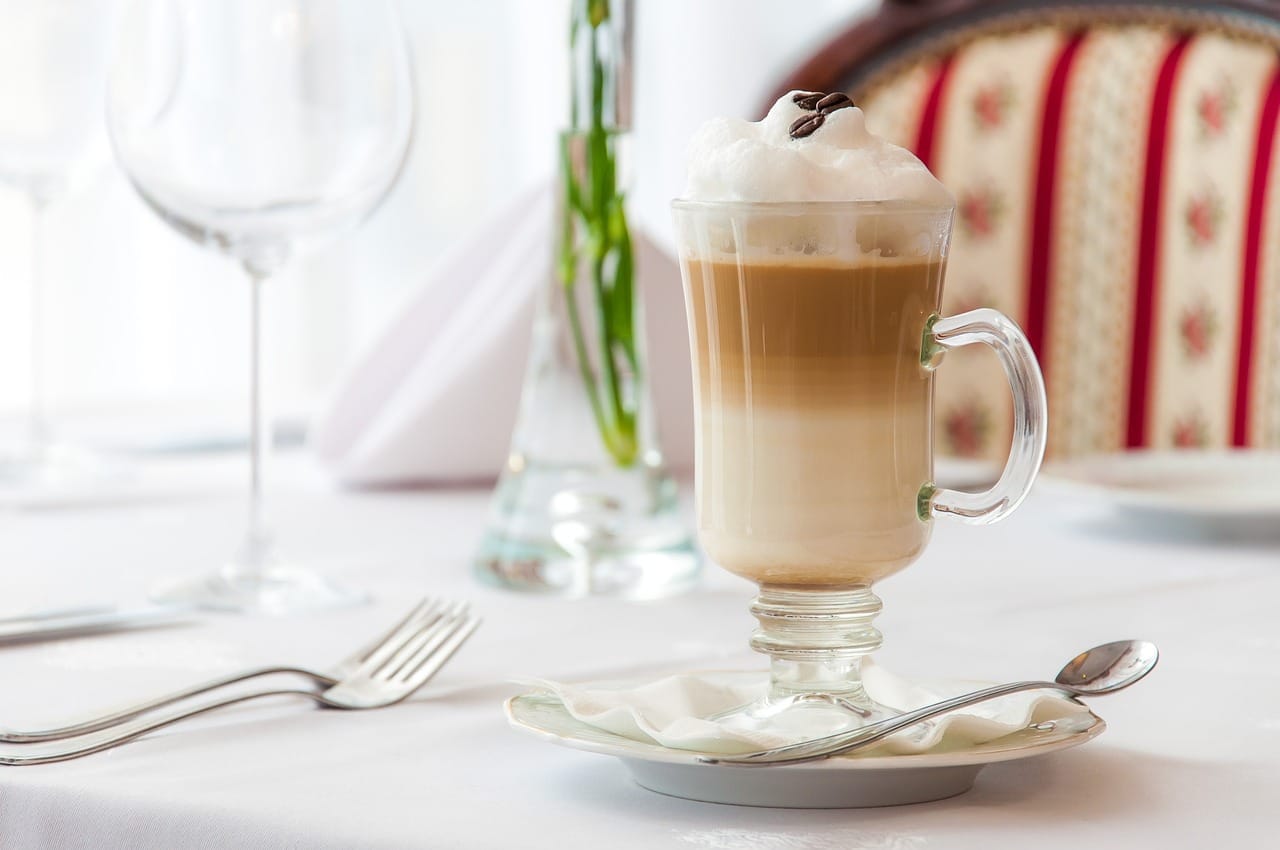Cappuccino Coffee: A Creamy Delight for UK Coffee Lovers
Are you a coffee enthusiast looking for the perfect blend of espresso and milk? Look no further than the beloved cappuccino. This Italian classic has won hearts worldwide, including here in the UK. Let’s dive into the world of cappuccino and discover why it’s become a staple in British coffee culture.

What is a Cappuccino?
A cappuccino is a coffee drink that combines espresso, steamed milk, and milk foam. The traditional ratio is equal parts of each, creating a harmonious balance of flavours and textures.
However, modern interpretations may vary slightly in their composition.
The Origins of Cappuccino
The cappuccino has its roots in Italy, but its popularity has spread far beyond Italian borders.

The name “cappuccino” is believed to come from the Capuchin friars, whose brown robes resembled the colour of the drink.
Since then, it has evolved into the beloved coffee beverage we know today.
Cappuccino vs Other Coffee Drinks
How does a cappuccino differ from other popular coffee drinks? Let’s compare:
Latte
A latte contains more steamed milk and less foam than a cappuccino.
Flat White
This Aussie favourite has less foam and a higher coffee-to-milk ratio.
Macchiato
A macchiato is essentially an espresso with a small amount of milk foam.
Each of these drinks offers a unique coffee experience, but this drink stands out for its perfect balance of coffee strength and creamy texture.
Making the Perfect Cappuccino at Home
You don’t need to be a professional barista to enjoy a great coffee at home.
Here’s a step-by-step guide to creating your own:
Start with quality espresso.
Use freshly ground coffee beans for the best flavour.
Steam your milk. If you don’t have an espresso machine, you can froth milk using a French press.
Pour the espresso into your cup.
Add the steamed milk, holding back the foam with a spoon.
Top with a generous layer of milk foam.
Optionally, dust with cocoa powder for a traditional finish.
Remember, practice makes perfect. Don’t be discouraged if your first attempts aren’t café-quality – with time, you’ll master the art of this specialty.
The Art of Milk Frothing
The key to a great cappuccino lies in the milk frothing technique. Here are some tips:
- Use cold milk for better frothing results.
- Aim for small, tight bubbles rather than large, airy ones.
- Tap the milk jug on the counter and swirl it to break down any large bubbles.
With these techniques, you’ll be creating silky, velvety milk foam in no time.
Variations
While the classic cappuccino is a favourite, there are many variations to explore:
Iced Cappuccino: Perfect for hot summer days.
Flavoured Cappuccino: Add syrups like vanilla or hazelnut for a twist.
Vegan Cappuccino: Use plant-based milk alternatives like oat or almond milk.
Dry Cappuccino: Features more foam and less steamed milk.
Wet Cappuccino: Contains more steamed milk and less foam.
These variations allow you to customise your cappuccino experience to your taste preferences.
Health Benefits of Cappuccino
When enjoyed in moderation, this coffee recipe can offer several health benefits:
- Antioxidants from the coffee beans
- Calcium from the milk
- Potential mood-boosting effects
- Improved cognitive function
However, be mindful of added sugars and high-fat milk if you’re watching your calorie intake.
Sustainable Cappuccino Practices
As coffee lovers, it’s essential to consider the environmental impact of our daily brew. Here are some ways to make your habit more sustainable:
- Choose ethically sourced coffee beans
- Use reusable cups for takeaway orders
- Opt for organic milk or plant-based alternatives
- Compost your coffee grounds
- Support local, independent coffee shops
By making these small changes, you can enjoy your cappuccino while minimising your environmental footprint.
The UK’s Cap(p)uccino Culture
The drink has become a staple in UK coffee culture. From high street chains to independent cafés, you’ll find it on menus in almost every coffee menu across the country.
The UK’s love for this Italian classic shows no signs of waning, with many Brits considering it their go-to morning coffee.
Cappuccino in Popular Culture
This coffee has made its mark in popular culture, appearing in countless films, TV shows, and books. It’s often portrayed as the sophisticated choice of coffee connoisseurs or the comforting drink shared between friends. This cultural presence has only heightened its popularity and cemented its place in our daily lives.
The Future of Cappuccino
As coffee trends evolve, so does the cappuccino. We’re seeing exciting developments in the world of cappuccino, including:
- Latte art becoming more intricate
- Experimentation with different milk types
- Integration of technology in cappuccino making
- Focus on origin-specific espresso beans
These trends suggest that it will continue to be a beloved coffee drink for years to come.
Conclusion
The ‘cappuccino’ is more than just a coffee drink – it’s a cultural icon, a morning ritual, and a canvas for barista artistry.
Whether you’re a longtime fan or new to the world of cappuccinos, there’s always something new to discover about this classic beverage.
So, the next time you’re in your favourite café or experimenting in your kitchen, take a moment to appreciate the craft and history behind your cappuccino. Here’s to many more delicious, frothy cups in your future!
References
Gallagher, J., 2024. How to Make a Cappuccino at Home (without an espresso machine). [online] Steampunk Coffee. Available at: https://www.steampunkcoffee.co.uk/blogs/steampunk-coffee-blog/how-to-make-a-cappuccino-at-home-without-an-espresso-machine [Accessed 10 September 2024].
Andrews, C., 2024. How to Make a Cappuccino. [online] CoffeeGeek. Available at: https://coffeegeek.com/guides/howtos/cappuccino-how-to/ [Accessed 10 September 2024].
Coffee Blog, 2024. How To Make A Cappuccino At Home. Kev’s 2024 Guide. [online] Available at: https://coffeeblog.co.uk/cappuccino/ [Accessed 10 September 2024].
Coffee Blog, 2024. Cappuccino vs Latte vs Flat White – Kev’s 2024 Guide. [online] Available at: https://coffeeblog.co.uk/cappuccino-vs-latte-vs-flat-white/ [Accessed 10 September 2024].
Tea and Coffee, 2024. Cappuccino, the world’s favourite coffee drink?. [online] Available at: https://www.teaandcoffee.net/blog/33933/cappuccino-the-worlds-favourite-coffee-drink/ [Accessed 10 September 2024].
Citations:
[1] https://www.steampunkcoffee.co.uk/blogs/steampunk-coffee-blog/how-to-make-a-cappuccino-at-home-without-an-espresso-machine
[2] https://coffeegeek.com/guides/howtos/cappuccino-how-to/
[3] https://coffeeblog.co.uk/cappuccino/
[4] https://coffeeblog.co.uk/cappuccino-vs-latte-vs-flat-white/
[5] https://www.teaandcoffee.net/blog/33933/cappuccino-the-worlds-favourite-coffee-drink/
[6] https://morgan.coffee/2014/01/27/cappuccino/
[7] https://www.reddit.com/r/Coffee/comments/g97uc6/french_press_guide_ultimate_beginners_guide_from/
[8] https://www.javapresse.com/blogs/french-press/the-ultimate-guide-to-french-press-coffee

